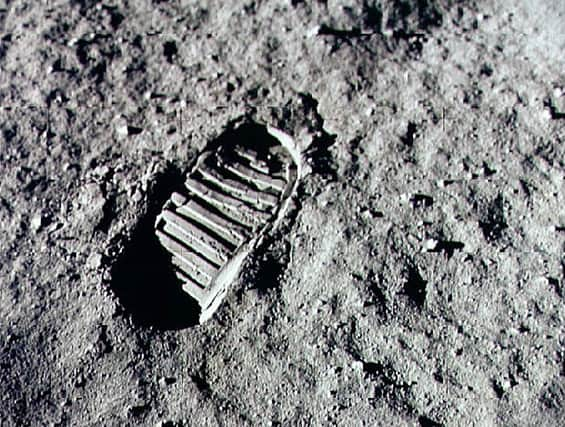Lunar Anthropocene: scientists argue that the Moon has been altered by human activity - so it belongs in a new epoch


The Moon is in a new epoch, known as the Lunar Anthropocene, researchers say.
Back when humans first touched the Moon - or more specifically when the Soviet Luna 2 probe crash-landed on the lunar surface in 1959 - humans began to alter the moon's natural history.
Advertisement
Hide AdAdvertisement
Hide AdThis age mirrors Earth's Anthropocene - a geological epoch defined by the timeframe within which human activity started warping our world.
The Anthropocene Epoch is an unofficial unit of geologic time, used to describe the most recent period in Earth's history when human activity started to have a significant impact on the planet's climate and ecosystems. Now researchers are arguing that since humans have become a dominant force in shaping the Moon's environment, such as leaving landers, flags, scientific experiments, golf balls, and human excrement, we are in the Moon's Anthropocene Epoch too.
In a statement, Justin Holcomb, an archaeologist at the Kansas Geological Survey said: "On the moon, we argue the Lunar Anthropocene already has commenced, but we want to prevent massive damage or a delay of its recognition."
If a few missions create a Lunar Anthropocene, then the next stage is more drastic as humans are planning to send a new wave of missions to the moon in hopes of establishing a lasting presence and exploiting its resources.
Advertisement
Hide AdAdvertisement
Hide AdHe believes that space exploration on the moon should be protected as cultural heritage, and added: "The concept of a Lunar Anthropocene aims to raise awareness and contemplation regarding our impact on the lunar surface, as well as our influence on the preservation of historical artefacts."
Comment Guidelines
National World encourages reader discussion on our stories. User feedback, insights and back-and-forth exchanges add a rich layer of context to reporting. Please review our Community Guidelines before commenting.
